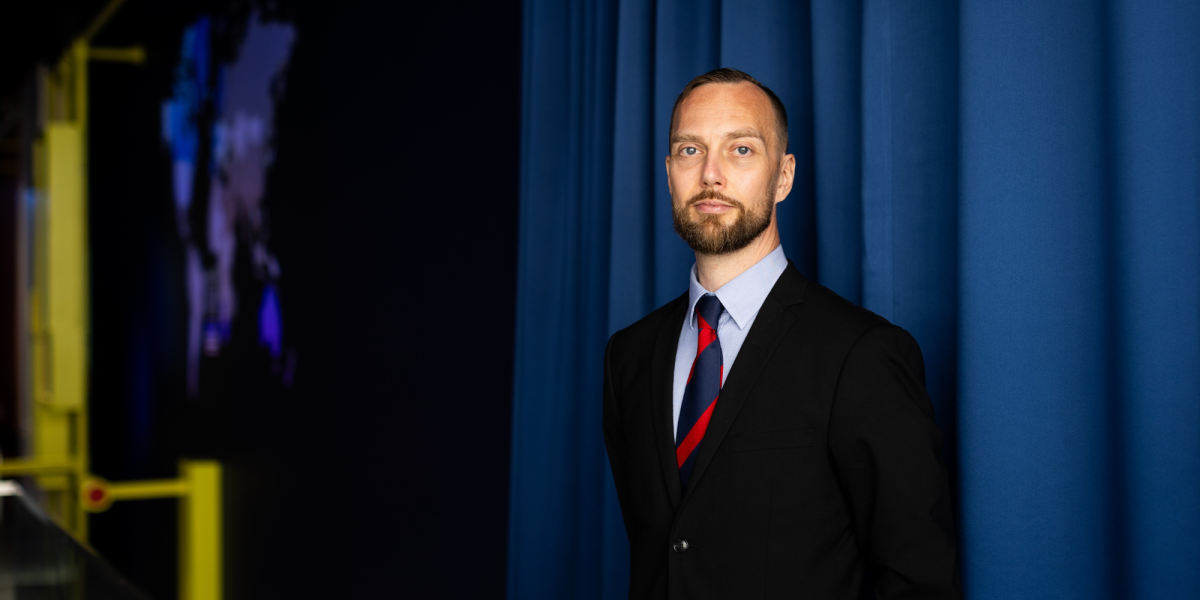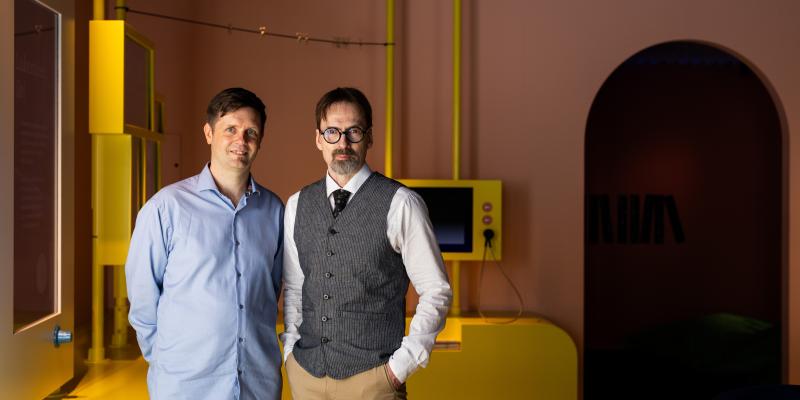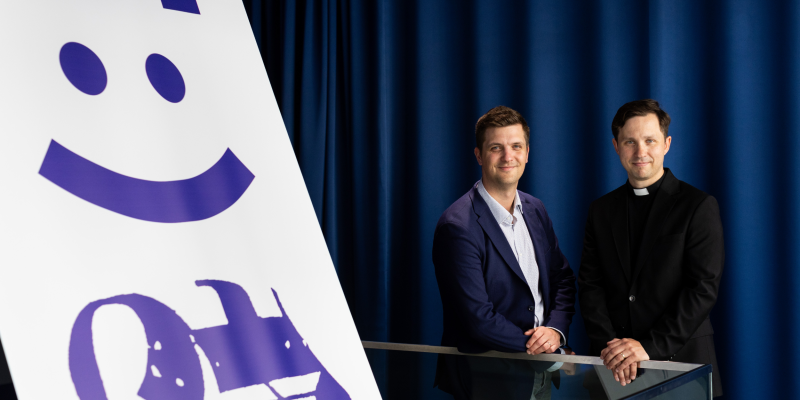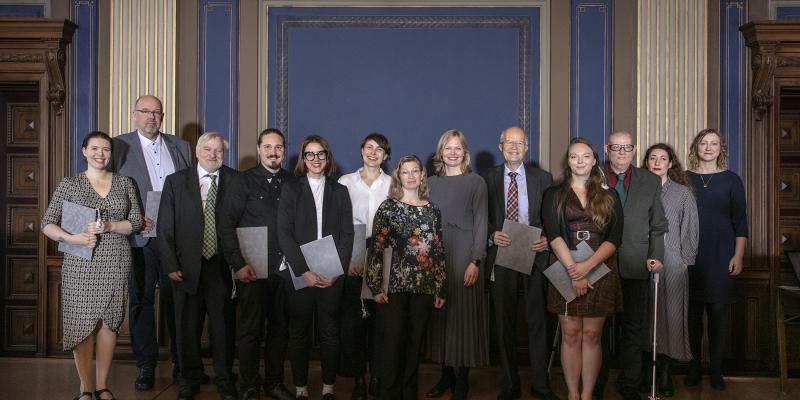
Military scientist Ilmari Käihkö reflects on his research in our interview series presenting the recipients of the Finnish State Award for Public Information 2024.
Ilmari Käihkö discusses assault rifles with former child soldiers and military science with his researcher colleagues. He is known for his objective and in-depth war analysis, based on extensive international research, published across various media.
Ilmari Käihkö, you’ve worked in crisis management in Chad, Central Africa, and interviewed combatants in Liberia, Sweden, Finland, and Ukraine. You teach military science at the Swedish Defence University and work as a visiting researcher at the Aleksanteri Institute in Helsinki. What is it like to study war using ethnographic and "chatnographic" methods?
Ilmari: I’ve studied many non-state armed groups that don’t leave behind written records or documents. The issues I’m interested in can’t be found in official records. As a researcher, I feel responsible for the people I interview. I need their information, and they provide it to me, but I don’t want them to face any problems because of our conversations.
One example relates to the war in Ukraine, which I wrote about in my book Slava Ukraini!: Strategy and the Spirit of Ukrainian Resistance 2014–2023. I followed the actions of Ukrainian resistance fighters on social media and coined the term "chatnography" for this form of research. Once, a contact who had promised to pick me up from the airport suddenly stopped answering his phone. I wasn’t sure if he’d come. He did show up eventually but explained that not everything can be shared online because digital communication always leaves traces, and security services monitor the internet. Luckily, I understood my responsibility as a researcher very early on. I made a mistake, but fortunately, it didn’t have any consequences. Still, it was an important experience for me. I want others to learn from my experiences and mistakes.
You study war from the perspective of the "little guy." How does ethics influence your research?
My 2016 dissertation focused on Liberia’s second civil war, fought between 1999 and 2003. I conducted fieldwork in the country and interviewed hundreds of former combatants. I often wondered what they gained from having a white researcher come and ask questions. Even years after the war, could these interviews cause them harm? Many assumed they’d receive money in exchange for the interview, but I didn’t have any to offer. The power asymmetry between me and the interviewees was obvious, even just because of skin colour. I had resources; they didn’t.
I tried to balance this dynamic through long-term collaboration and interaction. I lived with the people and participated in their daily lives, like farming and other activities. This allowed me to conduct participant observation. Over time, I became the person who had been around for a long time and would return a year later. When I was away, I stayed in touch. I was someone who existed for them. I became someone they could open up to, whether they were victors or perpetrators of atrocities. For many combatants, our discussions were highly traumatic. I once stopped a fascinating interview because I could see the person was struggling emotionally. I prioritised their well-being over my research.
My military background was helpful. I understand the work of a soldier and could, for example, discuss assault rifles with former child soldiers.
I believe we researchers don’t talk enough about research ethics. One problem is that ethical review processes are overly bureaucratic and time-consuming. Various committees need to approve ethical plans. Additionally, someone from a completely different field, like a natural scientist, might evaluate military science research. They may not have any personal or theoretical understanding of the issues or the potential harm the research could cause. These are matters we need to discuss more.
Your peer-reviewed book The Soldier’s Diary: How Peacekeeping Became Crisis Management (Gaudeamus, 2024) candidly portrays young Finnish soldiers’ operation in Chad in 2009. Why did you write the book?
I had lived abroad for 15 years, mainly in Sweden, the U.S., and different parts of Africa. I thought the book could be a meaningful Finland project, allowing me to work on issues I’d been reflecting on for years in other contexts. Discussions about war often take place at a high level, but we rarely hear the voices of Finnish soldiers. Soldiers usually lack the ability to express themselves, and their environment isn’t typically equipped to listen.
During the operation, I kept detailed notes in my diary. When I later interviewed 30 of my comrades, many said they’d never thought about the questions I was asking. Many were also grateful to finally have the chance to talk about our shared experiences for the first time.
This isn’t a memoir because, as a researcher, I’ve been trained to identify systematic problems so they can be addressed and resolved. I reflected on how military science relates to my experiences and how the issues I addressed could benefit the development of Finnish military science, Finnish society, and decision-making.
The goal of research is to provide practical benefits for real-world operations. This could mean better warfare or national defence, or, for example, protecting civilians during conflict. In the book, I discuss how racism fractured our unit because some were active racists, and others didn’t tolerate it. Racism divided the group and undermined the operation’s critical work in a country where we were officially to protect the local people. Racism was a concrete problem, and addressing it improves military operations—and likely Finland’s reputation abroad as well.
Receiving the State Award moved me deeply. The justification highlighted my objective and unbiased work, drawing on international research. That was precisely what I aimed for, dedicating much of my free time to it after Russia launched its full-scale invasion of Ukraine. I felt I had succeeded professionally as part of the broader international academic community in military science. Science isn’t done alone.
Text: Translated from the Finnish original by Helen Partti
Photo: Usva Torkki


